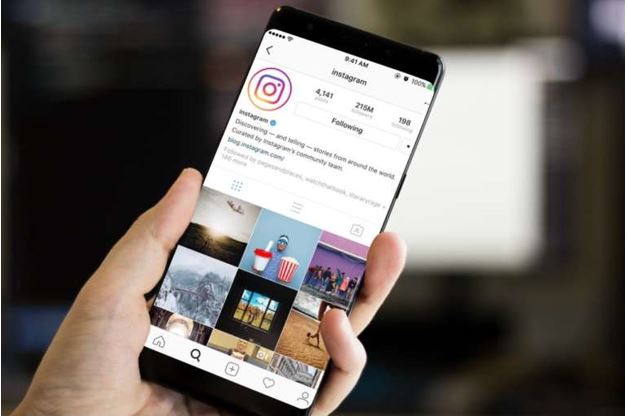How SEO Helps You Scale Your Business
In the digital era, where online presence dictates business success, SEO has emerged as a cornerstone strategy. It goes beyond the technicalities of digital marketing, weaving into the very fabric of a brand’s online identity. SEO transcends beyond just elevating a website’s ranking on search engines; it’s a pivotal tool that scales businesses by enhancing visibility, attracting the right audience, and converting clicks into loyal customers. By optimizing content and leveraging search algorithms, SEO effectively bridges the gap between a business and its potential customers. This article talks about how SEO can be a game-changer for businesses aiming to expand their digital footprint, focusing on its multifaceted role in driving growth and establishing a robust online presence.
1. Boosting Online Visibility
The primary benefit of SEO is the significant boost it provides to a business’s online visibility. By optimizing content with relevant keywords and ensuring the website adheres to search engine algorithms, businesses can climb higher on search result pages. This increased visibility is crucial, as websites on the first page of search results receive the majority of clicks. The higher a site ranks, the more likely it is to be visited, thus increasing web traffic and potential customer engagement.
2. Attracting Local Customers
For businesses focusing on local markets, SEO plays a crucial role in attracting nearby customers. If you are wondering how to rank for near me queries, local SEO strategies are key. They ensure that your business shows up in search results when potential customers in your area search for related services or products. Effective local SEO includes optimizing your Google My Business listings, focusing on local keywords, and garnering positive reviews from local customers. This targeted approach not only helps in connecting with the local audience but also drives foot traffic to physical storefronts, making it a vital strategy for local business growth.
3. Improving User Experience
SEO goes hand in hand with enhancing the user experience. Search engines favor websites that offer quick load times, mobile optimization, and easy navigation, all of which contribute to a seamless user experience. A well-optimized website not only ranks higher but also keeps visitors engaged longer, reducing bounce rates and encouraging exploration. This improved user experience is key to converting visitors into customers, fostering brand loyalty, and enhancing the overall perception of the business.
4. Building Brand Credibility
Ranking high in search engine results can significantly boost a brand’s credibility and trustworthiness. Users often perceive businesses that appear on the first page of search results as industry leaders or trustworthy sources of information. By consistently appearing in top search results, businesses can establish themselves as authoritative voices in their field, enhancing brand reputation and customer confidence. This credibility is essential for attracting and retaining customers, especially in competitive markets.
5. Cost-Effective Marketing
Compared to traditional marketing methods, SEO stands out as a highly cost-effective strategy. While it requires upfront effort and resources, the long-term benefits far outweigh the initial investment. Unlike paid advertising, which stops generating returns once funding ceases, the effects of SEO are sustainable and can continue to attract traffic and leads over time. This makes SEO an attractive option for businesses looking to scale effectively without incurring continuous high marketing costs.
6. Long-Term Business Growth
SEO is not a quick fix but a long-term strategy for sustainable business growth. Unlike paid advertising, which provides immediate but temporary results, the benefits of SEO build over time. By consistently adhering to SEO best practices, businesses can achieve a steady increase in traffic, improved brand recognition, and higher conversion rates. This sustained growth is essential for businesses looking not just to survive but to thrive in the digital marketplace. SEO’s ability to adapt to changing market trends and search engine algorithms ensures that your business remains relevant and visible to your target audience.
7. Targeting the Right Audience
One of the greatest strengths of SEO is its ability to target specific demographics and interests. Through careful keyword research and content optimization, businesses can attract visitors who are actively searching for their products or services. This level of targeting leads to more qualified leads and higher conversion rates. By aligning content with user intent, businesses ensure that they are not just attracting traffic but the right kind of traffic – visitors who are more likely to engage with the brand and convert into customers.
8. Gaining Competitive Advantage
In today’s digital landscape, a robust SEO strategy can set a business apart from its competitors. By securing a higher ranking in search results, businesses gain increased visibility and credibility. This visibility is crucial in attracting customers who might otherwise go to competitors. Moreover, ongoing SEO efforts are necessary to maintain and improve rankings, making SEO a continual process of adaptation and improvement. Businesses that invest in SEO are better positioned to adapt to industry changes and stay ahead of the competition.
9. Leveraging Analytics for Better Insights
SEO provides access to valuable data and analytics that offer insights into customer behavior, preferences, and trends. Tools like Google Analytics allow businesses to track website traffic, user engagement, and the effectiveness of their SEO strategies. These insights are invaluable for making data-driven decisions, understanding what resonates with the audience, and identifying areas for improvement. By leveraging this data, businesses can refine their SEO strategies, tailor their offerings to meet customer needs, and ultimately drive more effective business growth.
10. Adapting to Market Changes
The digital market is ever-changing, and SEO strategies need to be flexible and adaptable. Whether it’s changes in search engine algorithms, evolving user behavior, or emerging industry trends, businesses must be prepared to adjust their SEO strategies accordingly. This adaptability ensures that the business remains relevant and continues to meet the needs of its target audience. Staying informed and responsive to these changes is key to maintaining a strong online presence and ensuring long-term business success.
Conclusion
SEO is a powerful tool for scaling a business in the digital world. From driving long-term growth to targeting the right audience, gaining a competitive edge, leveraging analytics for insights, and adapting to market changes, the benefits of SEO are manifold. It’s a strategy that requires patience, consistency, and a willingness to evolve with the digital landscape. Businesses that recognize the value of SEO and invest in it wisely are better positioned to grow, succeed, and stand out in the crowded online marketplace. In conclusion, while SEO may require time and effort to master, its impact on business scaling is undeniable. By embracing SEO, businesses not only enhance their online visibility but also set the stage for sustained growth and success. In the ever-evolving digital age, SEO is not just a marketing tactic; it’s an essential component of a comprehensive business strategy aimed at achieving long-term success.




















